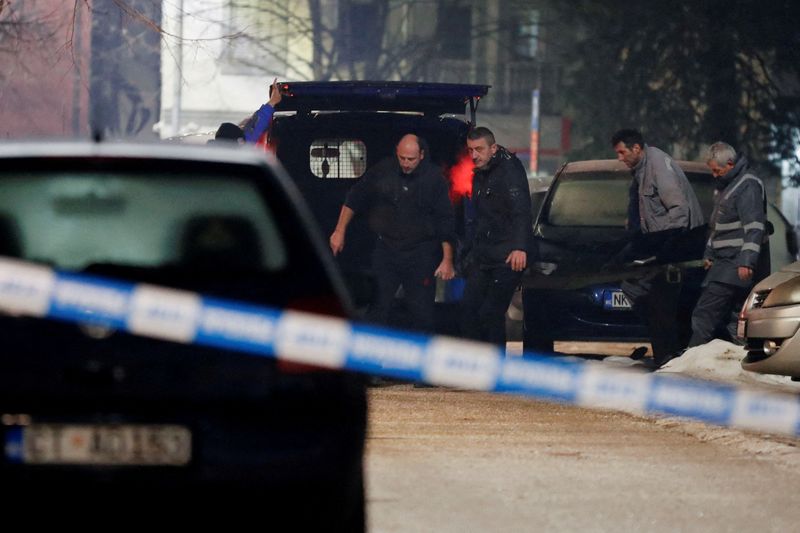PODGORICA, Montenegro (Reuters) – A gunman who killed no less than 10 individuals in a rampage in a small city in Montenegro died from self-inflicted accidents on Thursday after making an attempt suicide, the nation’s inside minister, Danilo Saranovic, stated.
The gunman, recognized by police as Aleksandar Martinovic, 45, tried suicide close to his house within the city of Cetinje after being cornered by police.
“When he saw that he was in a hopeless situation, he attempted suicide. He did not succumb to his injuries on the spot, but during the transport to hospital,” Saranovic informed Montenegro’s state broadcaster, RTCG.
Saranovic offered no particulars on the tried suicide.
Martinovic was on the run after opening hearth on Wednesday afternoon at a restaurant in Cetinje, a small city positioned 38 km (23.6 miles) west of Podgorica, the Montenegrin capital, the place he killed 4 individuals.
The shooter then moved on to 3 different places, killing no less than six extra individuals, together with two kids, police stated. 4 different individuals suffered life-threatening accidents.
Police stated Martinovic had a historical past of unlawful weapons possession.
Late on Wednesday, police director Lazar Scepanovic stated the suspect was thought to have been consuming closely earlier than the taking pictures. Montenegrin Prime Minister Milojko Spajic stated there had been a brawl earlier than photographs had been fired.
Police stated the taking pictures was not regarded as linked to organised crime.
Mass shootings are comparatively uncommon in Montenegro, which has a deeply rooted gun tradition. In 2022, additionally in Cetinje, 11 individuals, together with two kids and a gunman, had been killed in a mass assault.
Wednesday’s incident shocked the nation of 605,000 individuals. Spajic known as the rampage a “terrible tragedy” and declared three days of nationwide mourning. President Jakov Milatovic stated he was “horrified” by the assault.

Regardless of strict gun legal guidelines, the Western Balkans composed of Serbia, Montenegro, Bosnia, Albania, Kosovo and North Macedonia, stay awash with weapons. Most are from the bloody wars within the Nineteen Nineties, however some date again even to World Conflict One.
Spajic stated authorities would take into account tightening standards for proudly owning and carrying firearms, together with the potential of a whole ban on weapons.




